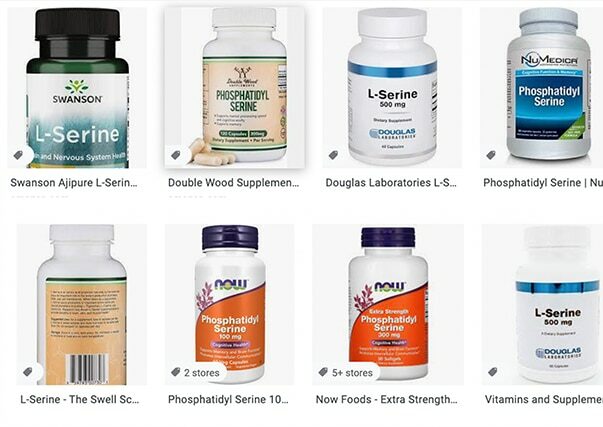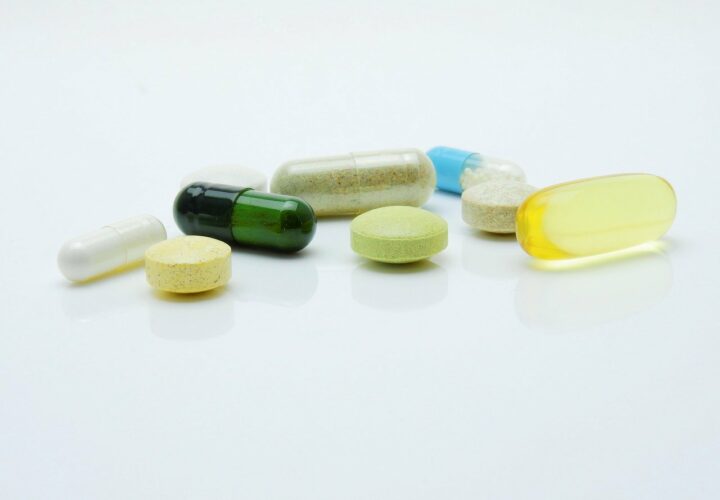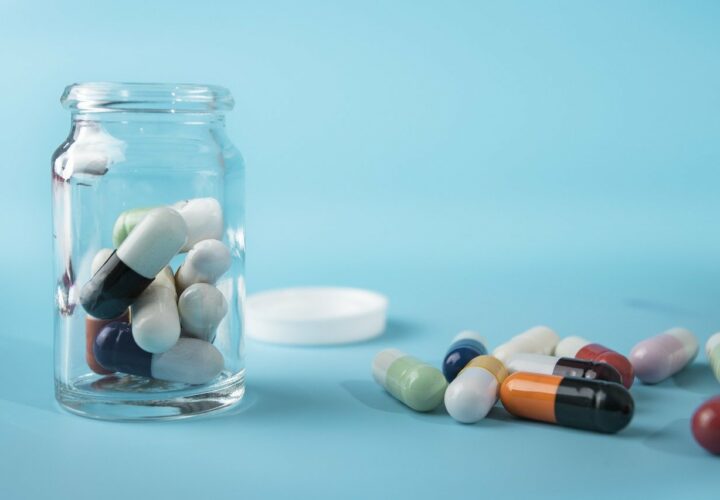Do serine supplements work? When researchers looked into whether nootropics containing L-serine and D-serine are a brain boost or a bust, they found something alarming: the protein that produces serine in the body is a biomarker for Alzheimer’s.
The appeal of brain boosting pills is obvious: a simple solution that supports cognitive function, making you sharper, improving your memory. This sort of magic fix promised by nootropics is appealing to anyone who is aging — as well as people at risk of developing Alzheimer’s disease. Many companies market serine supplements as brain-boosting solutions. This was bolstered by the conclusions of a 2020 study performed in a mouse model of Alzheimer’s which found a reduction in serine production capacity within the brain. The authors wrote that their findings “suggest oral L-serine as a ready-to-use therapy for [Alzheimer’s disease].”
However a 2022 study led by scientists from the University of California, San Diego casts doubt on serine’s effects and warns individuals to be careful if using the supplement.
What is serine?
Serine is an amino acid that functions as a building block of proteins and also plays a role in neuronal signaling. There are two forms of this amino acid: L-serine and D-serine. L-serine occurs naturally in the diet and can be produced naturally by the body. D-serine is a natural derivative of L-serine in the body.
Researchers note that consumers
considering serine supplementation as a
brain booster should “exercise caution.”
Serine in various forms is marketed to boost cognitive function and memory in healthy individuals as well as people with degenerative brain disorders. Supplements market D-serine for uses like schizophrenia, Parkinson’s disease, memory and cognitive function, among other things, while L-serine is marketed as a supplement that can benefit sleep quality, diseases like ALS, and other conditions.
However, there are few to no randomized human clinical trials testing the supplement. Nonetheless, many brands including Swanson and Nutricost sell 60 capsules for $9.99.
Should you take serine supplements?
Brain supplements have a lot of marketing power behind them. Some — for example, Neuriva Plus — have celebrity endorsements, while others line the shelves of the grocery store in flashy packaging — often with high price tags. However, as with L-serine and D-serine, there is little (and in some cases no) credible scientific evidence supporting the efficacy of these supplements and in some cases, they even contain unlabelled illegal or dangerous ingredients.
“Supplement manufacturers are legally allowed to make misleading claims that may not have the greatest degree of scientific integrity,” Dr. Joanna Hellmuth, a neurologist at the University of California San Francisco Memory and Aging Center, previously told Being Patient.
That’s important to keep in mind when shopping for ways to boost your memory and other aspects of your brain health. Case in point: In the serine supplementation study in particular, the researchers found that the amount of a certain enzyme called phosphoglycerate dehydrogenase (PHGDH) in the brain of aging individuals is actually associated with Alzheimer’s risk.
Are L-serine supplements safe?
The enzyme PHGDH is responsible for making serine in the body, suggesting serine is linked to cognitive decline. The exact nature of that link remains unclear, but the research team not only found no evidence that giving your brain extra serine was helpful — they found that the serine naturally produced by the brain is not associated with improving brain health, and in fact, may even be part of what propels cell death and cognitive decline.
The link between serine and PHGDH, an Alzheimer’s biomarker
The study looked across multiple different samples of post-mortem brains from people at various stages of Alzheimer’s. Looking at individual cells from the brains of 24 individuals without Alzheimer’s, 15 from individuals with early Alzheimer’s, and 9 individuals with late Alzheimer’s. The levels of PHGDH in astrocyte cells was associated with Alzheimer’s progression, with more of this biomarker in later stages of the disease.
Next, the researchers looked at this biomarker in the brains of 42 individuals who had no signs of Alzheimer’s or who had the characteristic amyloid plaques without any symptoms before their death. Here, the researchers saw that this biomarker was related to Alzheimer’s brain pathology.
Additionally, they found that the levels of this biomarker increased across the different Braak stages of Alzheimer’s in individual brain cells taken from the hippocampus. This region of the brain is responsible for memory and is affected over the course of Alzheimer’s disease.
This study also confirms previous work from the same researchers which found this biomarker was elevated in the blood of people with Alzheimer’s.
“It’s exciting that our previous discovery of a blood biomarker is now corroborated with brain data,” co-lead author Sheng Zhong, PhD, a professor of bioengineering at the University of California, San Diego said in a news release. “Now we have strong evidence that the changes we see in human blood are directly correlated to changes in the brain in Alzheimer’s disease.”
Is serine good for the brain?
Taken together, the authors believe that the increased production of serine could initiate cell death in the brain.
“The fact that this gene’s expression level directly correlates with both a person’s cognitive ability and disease pathology is remarkable,” Zhong said.
It is also a bad look for serine supplements. The study was unable to measure the serine levels in people’s blood or their brain, but the researchers posit that serine supplementation is unhelpful.
“Anyone looking to recommend or take serine to mitigate Alzheimer’s symptoms should exercise caution,” Riccardo Calandrelli, another author of the study said in the news release.
In the meantime, Zhong has co-founded a company called Genemo to develop an Alzheimer’s blood test based on PHGDH which has shown promise as a predictive biomarker. In the future, it might be one of many standard blood biomarkers used to assess the risk of developing Alzheimer’s.
UPDATED MARCH 30, 2023: This article from May 2022 was updated with new information to help our readers.





Has anyone stopped for a second and ponder the fact that the increase in PHGDH might be a compensation mechanism of the brain trying to actually repair itself from the damage it’s beeing put through and NOT something that hurts us even more?! At least not intentionally?!
Conversely, does daily ingestion of L-Serine suppress the natural production of the compound via the PHGDH mechanism? The analogy would be the brain no longer producing dopamine due the the artificial introduction of a opiate, e.g. heroin, fentanyl ect. The question then conference whether the presence of PHGDH is diminished due to adequate levels of L-Serine already being present